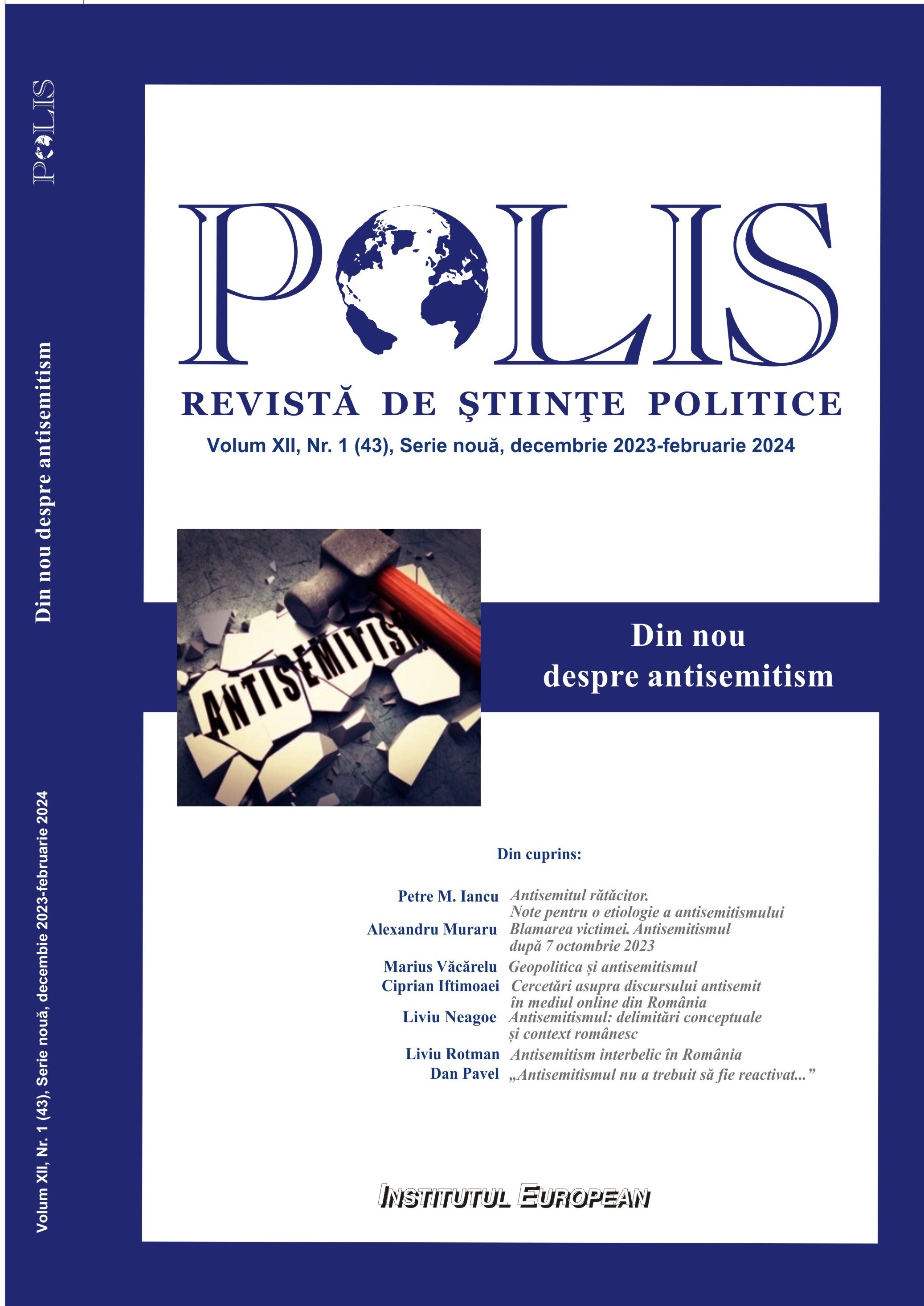Antisemitismul: delimitări conceptuale și context românesc
Anti-Semitism: conceptual boundaries and Romanian context
Author(s): Liviu NeagoeSubject(s): Politics / Political Sciences, Jewish studies
Published by: Editura Institutul European
Keywords: Romanian history; Anti-Semitism; Jewish issue; national specificity;
Summary/Abstract: This paper is a historical inquiry about Romanian Anti-Semitism starting with the second half of the Nineteenth century. Romanian Anti-Semitism has evolved during the Nineteenth century in the direction of the consolidation of the national conscience related to the Jewish population considered to be the extreme otherness. The Anti-Semitic consensus features the majority of the political elite so that the answer offered to the Jewish question shaped the ethnic definition of the nation. But the Romanian Anti-Semitism was not a local phenomenon with a political stake; it must be understood in Central and East-European frame. The Jewish question has been reshaped in the interwar period as part of the grand debate around national specificity. With arguments from the Nineteenth century and the spiritual Orthodox mystique the Anti-Semitic discourse has embraced not only by the intellectuals of the old generation: Nicolae Iorga, Alexandru C. Cuza, Octavian Goga, Nichifor Crainic, Nae Ionescu but also by the young generation intellectuals: Mircea Eliade, Emil Cioran, Mircea Vulcănescu, Constantin Noica.
Journal: Polis. Journal of Political Science
- Issue Year: XII/2024
- Issue No: 43
- Page Range: 115-123
- Page Count: 8
- Language: Romanian

